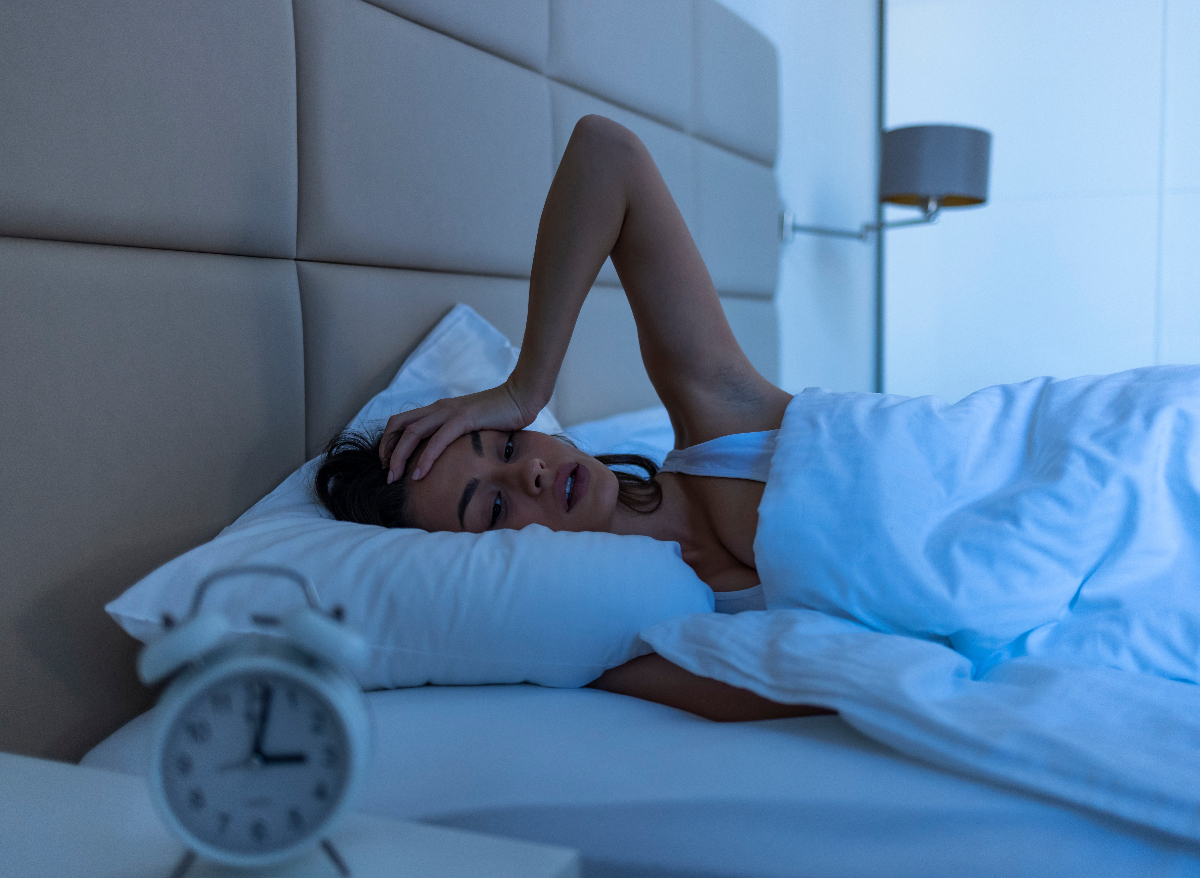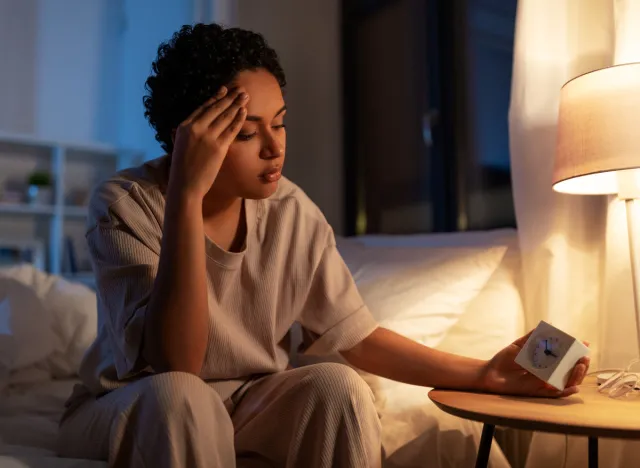Prevent Waking Up At Night With These Tips, Expert Says

Ah, how truly amazing it feels to be reunited with your cozy covers at last. After a busy day, there’s nothing you want more in this very moment than to curl up under your plush comforter and peacefully fall asleep. But alas, what seems like soon after you snooze into dreamland, you wake up shortly after. It’s beyond frustrating, because you were really looking forward to getting an uninterrupted, good night’s rest—but your body had other plans.
We previously clued you in on the potential reasons why you’re waking up at night, but now, we’re delivering some fresh insight on what you can do to hopefully prevent it from happening altogether. We spoke with Dr. Mike Bohl, MD, MPH, CPH, MWC, ELS who offers the below tips on how to put a stop to this unwelcome sleep disturbance and get an overall good night’s rest. With just the right nighttime routine, you’re well on your way to experiencing some quality Z’s. Read on to learn more, and next, check out The 6 Best Exercises for Strong and Toned Arms in 2022, Trainer Says.
Don’t exercise too much too close to bedtime

Too much exercise within one hour of when you’d like to fall asleep is a major no-no. Sleep Foundation stresses that doing this doesn’t give the temperature of your core body enough time to cool down, which could result in delayed sleep and waking up more than once at night. According to a 2020 study, ending your moderate-intensity exercise an hour and a half before bedtime is the right move if you want to get some quality sleep. So, be sure to schedule your sweat sesh at the right time of day (or night) where it won’t wreak havoc on your Z’s.
Don’t eat a big meal right before you head to sleep

Just as you don’t want to over-exercise before curling up under the covers, you also don’t want to overstuff your stomach. Eating a big meal right before bed could be the culprit behind why you’re waking up in the middle of the night. In fact, a previous study published in the Journal of Clinical Sleep Medicine concluded that consuming low-fiber meals with high sugar and saturated fat content is the perfect recipe for a disruptive sleep. Make the right pre-bedtime meal choices—you may want to consider fish like Atlantic salmon, rice, almonds, cherries or tart cherry juice, and chamomile tea, to name a few examples.
Related: 40 Best and Worst Foods to Eat Before Sleep
Don’t expose yourself to blue light right before bedtime

Scrolling through social media or streaming your fave show right before bedtime can mess with your circadian rhythm, leading to a disruptive night’s sleep—so you might want to think twice before grabbing your phone when you get cozy under the covers. Exposure to really any kind of light can restrain your body’s melatonin secretion, but an experiment conducted by Harvard researchers found that blue light, specifically, is the worst. It was concluded that melatonin was restrained for about two times as long when exposed to blue light, compared to the green light. Lesson here? Your scrolling and TV binge-watching is not invited to your bedtime routine!
Related: Want to Sleep Better? Avoid These Sleep Positions, Say Experts
And if you do wake up… don’t stress about it

Last, but certainly not least—if you wake up in the middle of the night, don’t sweat it! As previously noted, the above pointers are all quite similar to the tips you’d follow to get an overall good night’s rest. But what Dr. Mike really likes to focus on is this: “If I do wake up in the middle of the night, I just don’t worry about it too much.”
The time you spend worrying about falling back to sleep or not giving your body enough rest can actually be “counterproductive,” as Dr. Mike puts it. “[You’re actually making] it more difficult to get back to sleep like you want to. So instead, I accept that my body has woken up, and I just think about an interesting topic until I fall back asleep. Usually, that happens sooner than I realize,” he says.









